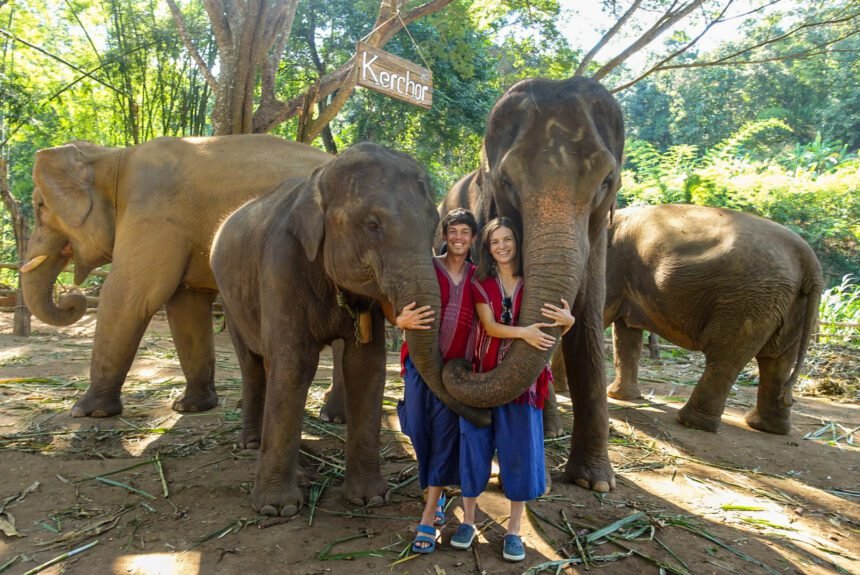When a travel blogger shared a December 2022 video of their visit to an elephant sanctuary in Phuket, Thailand, it highlighted a more ethical way to interact with these magnificent creatures. Rather than exploiting elephants for entertainment and tourism, this sanctuary provides a safe refuge for rescued animals to live freely.
The 30-acre sanctuary featured in the blogger’s clip welcomes visitors to observe, feed, and learn about elephants in a protected habitat.
Many of the resident elephants faced illness, injury, or neglect after years in Thailand’s elephant tourism and logging industries before finding refuge here.
Through responsible tourism, the sanctuary offers guests educational experiences while funding operations to rehabilitate elephants. Visitors tour the grounds to watch elephants bathe, socialize, and forage. The schedule also allows time to feed them fresh fruits and learn about threats facing Asian elephants from conservation staff.
The owner formerly ran an elephant riding camp, a sadly common attraction criticized for animal cruelty.
To procure docile elephants for tourists, violent practices often break these intelligent animals’ spirits. The COVID-19 pandemic and shifting attitudes have since diminished riding camp demand. But years spent chained, starved, and abused take immense physical and emotional tolls.
By transforming his own business to focus solely on elephant wellbeing, the owner provides a more ethical model for elephant centers in Thailand. Tourists can still marvel at elephants up close while supporting efforts to heal desperate victims of a merciless industry. Their curiosity and dollars now aid abused elephants rather than perpetuating the cycle.
This elephant sanctuary and its growing counterparts illustrate a promising direction for Thailand’s tourism market.
As demand increases for humane yet engaging elephant encounters, more entrepreneurs have an incentive to convert exploitative camps into rehabilitation sanctuaries. Travelers can visit these shelters with clear consciences, knowing their presence helps fund better futures for Thailand’s mistreated elephants.









